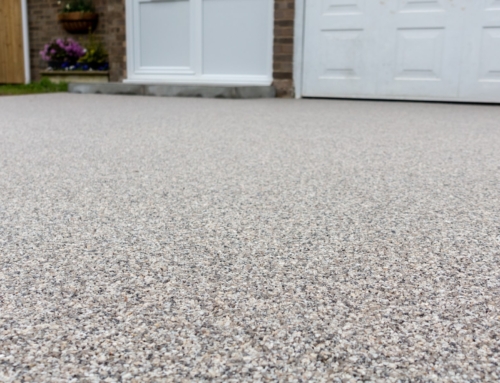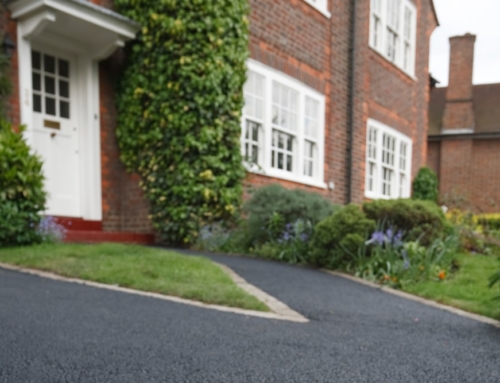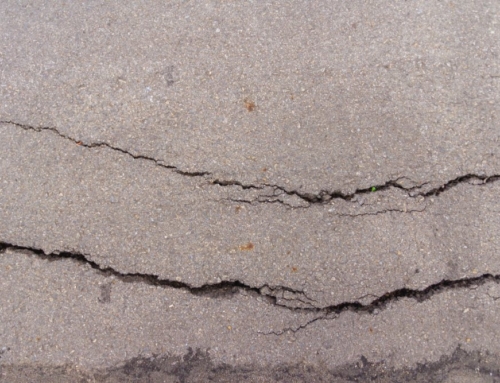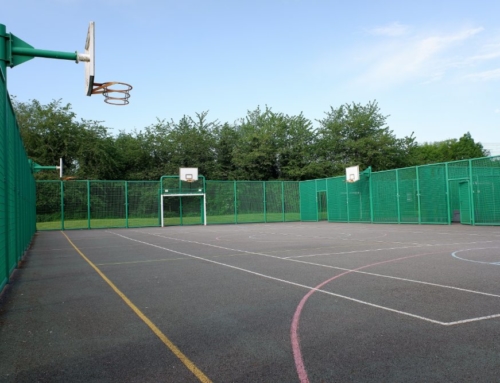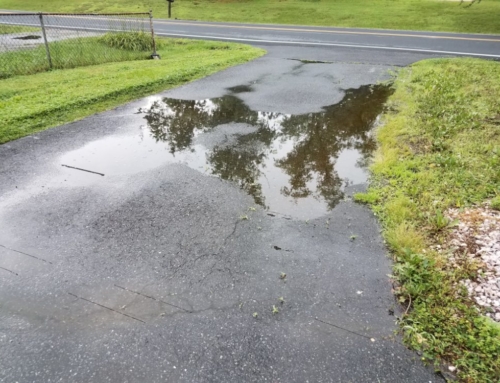How to Care for Your Driveway Over Winter?
The wintery months can wreak havoc on roads, cars and no less — driveways. While most people are aware that driveways become more slippery — and therefore more hazardous — in the colder months, a lesser known truth is that the common methods used to combat the ice can actually end up causing serious damage to an otherwise stunning driveway surface. This article is going to look at how your driveway is affected during the holiday season, and will discuss how to protect your driveway from becoming a dangerous ice rink without damaging the surface.
Why are driveways more dangerous in cold weather?
How your driveway fares in cold weather will differ depending on its surface type. A less permeable surface, such as concrete, will be less efficient at absorbing water — thus leaving water free to settle and freeze within cracks and gaps on the driveway surface.
For more permeable surfaces, such as resin-bound paving, this isn’t so much of a problem; a greater amount of water is absorbed by the paving, leaving little left to freeze.
How do people combat this?
There are two main ways that people combat the icy weather on their driveways. If aware of impending snow, it is common for people to scatter a mixture of rock salt or grit on their driveway. If the snow has already come and settled, you will often find people shovelling the snow away from their driveway using a metal shovel.
However, both of these methods can cause problems.
Rock salt/grit works by lowering the freezing temperature of water. This helps to prevent falling water from turning into ice, as well as melt existing ice. Though it is effective, the combination of water and the chemically composed grit mixtures form to make a substance that can actually corrode certain driveway surfaces. The mixture will seep into cracks and gaps, leading to slight corrosion and the widening of these cracks and gaps.
Shovelling helps to remove snow from a driveway, but the repetitive strikes from the shovel tip on the driveway surface can cause chips and dents to occur.
How do I best protect my driveway?
To best protect your driveway, we recommend using a sealer, applied by a team of professionals, to ensure that your driveway surfaces is smooth and filled. This will stop water from entering cracks on not-so-permeable surfaces and creating icy spots. It also means that you can use grit or rock salt without the risk of the water-combined chemical mixture entering cracks and breaking down your driveway. By adhering to this, snow shouldn’t settle on your drive, meaning you also won’t need to chip away at your driveway with a shovel.
At UK Surfacings, we can apply sealer, along with a range of other professional help, all as part of our driveway maintenance and repair services. To prevent salt damage and halt the freeze thaw cycle, give our friendly team a call today.

